Our functional heads and sourcing executives are adept in future technologies and service requirements for any business requirement where they design the sourcing program focusing on immediate cost improvement, ensuring an appropriate balance of scale, competition, and capabilities.
We can Services map your business strategies to the necessary IT infrastructure and enable you to achieve business goals efficiently.
Mont Digital provides consulting in advanced IP, advanced routing, switching, wireless/ wireline networks, VoIP, IP telephony, Video conferencing, Data centres, Servers, firewalls, Security appliances and many more.
The company's consultancy scope usually includes Building in-premises servers or cloud servers to network engineering, design, consolidation, and outsourcing.
Mont Digital solutions enable companies to create and successfully deploy IT practices and solutions that boost immediate productivity and significantly reduce operational costs.
Whenever a digital transformation journey starts, the Journey of the IT network starts for any company. Many IT companies enable setting IT infrastructure to platforms, data storage to containers, management to automation, etc.
In previous decades, when the computer was new, having a computer/printer and some network was treated as a technical system. But over time, this perception has changed. We have used digital means in the working environment for the last 60 years, but the last 15 years have been a game-changer.
Many more advanced technologies like Big Data Analysis, Dev Ops, Security, Hybrid Cloud, high-performance computing, Artificial intelligence, Automation, etc., have come to rule the environment. The Blockchain is also one of the new players in this segment.
The simple meaning of Technology has changed. Laptops, phones, and tablets are replacing computers. People need seamless connectivity between all the components. We need to access email and work-related software from home, thus enabling work from home.
As IT roles increase, companies find it challenging to manage them independently. Big IT companies like IBM, HP, TCS, Dell, HCL, and their core work area are implementing IT infrastructure for smaller companies.
Various verticals in IT have been created. Business and Data analysis has also increased. Looking at the trend, we may also be sure that the trend will only increase further in the coming times. More details as follows: -
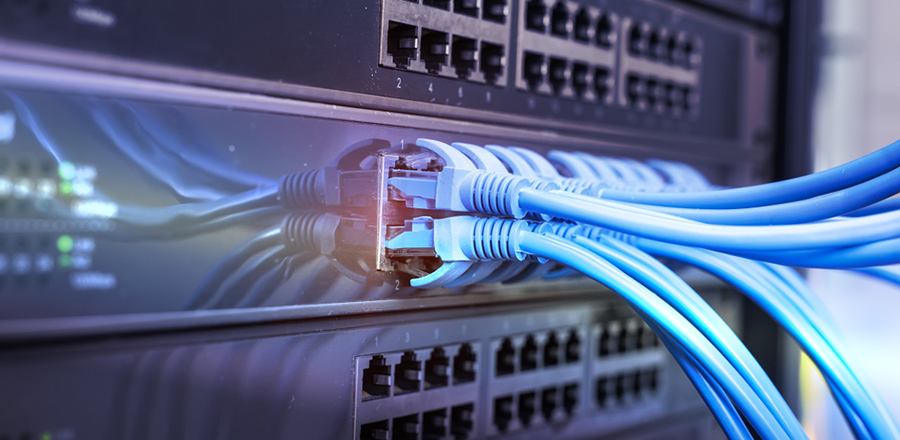
What is a Network?
A network is a set of systems that connects computers/Devices/Systems installed in various locations. It mainly consists of Routers, switches, servers, Computers, and Network connecting devices.
There are many types of a network, like Personal Area Network (PAN), Wireless Local Area Network (WLAN), Campus Area Network (CAN), Storage Area Network (SAN) and many more. However, what is widely used and recognized is as follows.
1. Wide Area Network (WAN): - This network infrastructure enables the connection of many computers over a large area. Here, computers may communicate even if they are miles apart. Big companies widely use it.
2. Local Area Network (LAN): - It is one of the most original and simplest networks widely used in different types of set-up. Here, computers are installed within or between two or three buildings nearby to share and communicate.
3. Metropolitan Area Network (MAN): - This network type covers distance more than LAN but less than WAN. It is typically used for companies with more than one office in the same metro city or not very far away from each other.

What is network infrastructure?
The Network has become more powerful in the evolving business environment, where digital transformation is key to increasing your footprint in more areas.
A system's agility and efficiency depend largely on IT network infrastructure. Your business prospects will be bright if it is robust, secure, and clean. Opposite of the same will damage your brand value and may permanently lead to the closure of the business.
Network infrastructure is a system that enables connectivity between two machines, thus enabling business operation and connectivity. It may contain hardware, software, devices, and a system.
The concept of Multinational companies or big companies only evolved after the development of network infrastructure. It would not have been possible without companies like Apple, Cisco, Samsung, PepsiCo, IBM, Dell, and TCs.
Safety is the best point when considering a Network infrastructure is robust. If someone hacked into your network infrastructure, they can damage your overall working environment. The main challenge of this type is the infrastructure is Centralizing Traffic, Dealing with Duplication of data, and safety concerns.
Having, protecting, and maintaining a healthy system can be a big talk, but your business will increase many folds once implemented.
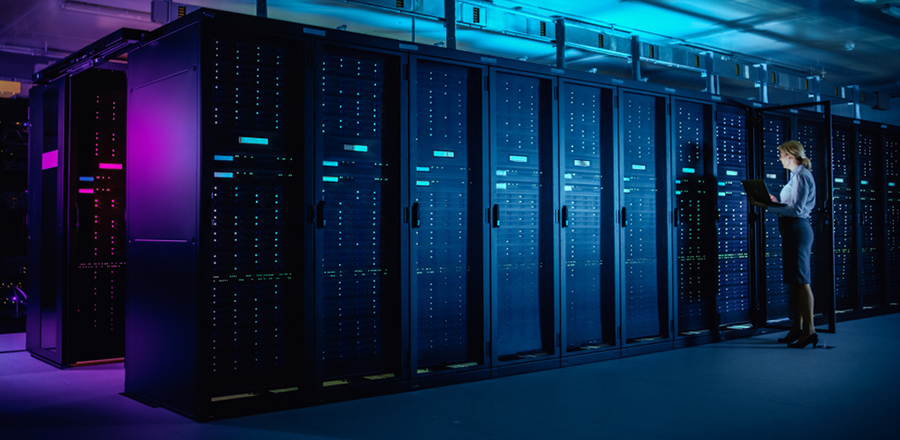
What is the IT infrastructure?
IT and network infrastructure look the same for a general person, but there is a vast difference between them. An IT fracture contains all the components of a system, enabling a company to be digitally transformed.
For example, Computers for Office Work, Printers for Printing purposes, Network devices for Connecting computers/devices, Fast Internet for communication and data transfer, and Fax machines for sending documents are all called IT infrastructure.
So, the Network is a component of IT, not a whole. Without a network, the IT system may be set up. Network infrastructure is mandatory.
Ensuring your IT infrastructure is robust, secure, and clean is critical to organizational excellence. There are three components of an IT infrastructure, which is as follows: -
-
Hardware: - It consists of computers, Servers, Switches, routers, data centres, etc.
-
Software: - It refers to the application used by the organization. It consists of Windows, MS Office, PDF reader, etc.
-
Networking: - The Network consists of internet connectivity, enablement, firewalls, and security. It also includes hardware like a Switch, Router, Cable, etc.
It is necessary to coordinate IT resources, systems, platforms, people, and companies' environments. Here, the roles of IT Management come. IT management has various types like IT Automation, Risk Management, API Management, OS Management, Operation management, etc.
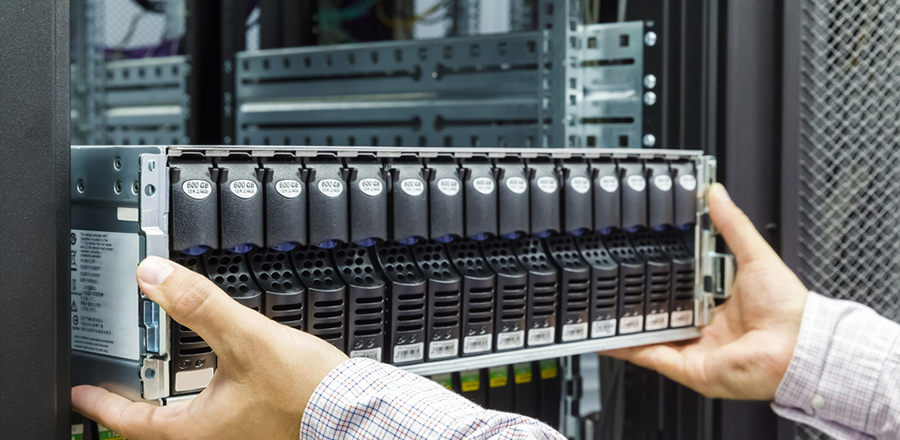
Network Infrastructure: A Brief Insight
In today's digital world, an organization's growth and productivity depend on robust equipment rather than an employee's hard work. Hence, we must look for a secure, clean network infrastructure to run smoothly.
If you lack proper network infrastructure, you will likely experience security issues that affect an employee's performance. Now, if you are thinking, what is a network infrastructure? Read below.
The infrastructure of your computer network is generally referred to as the Network infrastructure. Hence, your computer network's foundation, which includes management, connectivity, etc., is the environment you want to create.
Network infrastructure is packed with software and hardware, devices, and systems. This is responsible for computing and communication between services, users, processes, and applications.
In simple words, it can be said that things involved in the Network, such as routers, servers, and wireless routers, all together form a network infrastructure.
If the network infrastructure design is lacking, you might face various congestion in the Network. This will then lead to productivity delays. Therefore, developing a strong network infrastructure is always suggested to make your organization grow faster.

Which are examples of IT infrastructure?
The components needed for operating and managing any organization's IT department are known as the IT infrastructure. This particular infrastructure is used in an organization's facilities or a cloud computing system.
Now, if you are wondering what these components are, this includes data storage, software, hardware, or anything that provides your enterprise IT solutions or services. To provide you with a better understanding, we provide you with some examples of IT infrastructure, have a glance below: -
-
Telecommunication services: - Leased lines help you with internet connectivity and all corporate facilities.
-
Network equipment: - Routers are the best examples of network equipment.
-
Facilities: - Data centres are the facilities that serve an organization's house infrastructure.
-
Computing: - This includes hardware like essential software or servers that are the operating system.
-
Power: - Solar battery system, power generators, solar panels, power supply.Power: - Solar battery system, power generators, solar panels, power supply.
-
Computing platforms: - It is referred to as a cloud computing platform.
-
Application platform: - Webserver
-
IT services: - Data backup
-
Information security: - intrusion detection system
So, these are some examples of what an IT infrastructure contains. All these are essential in making your organization's IT environment run smoothly.
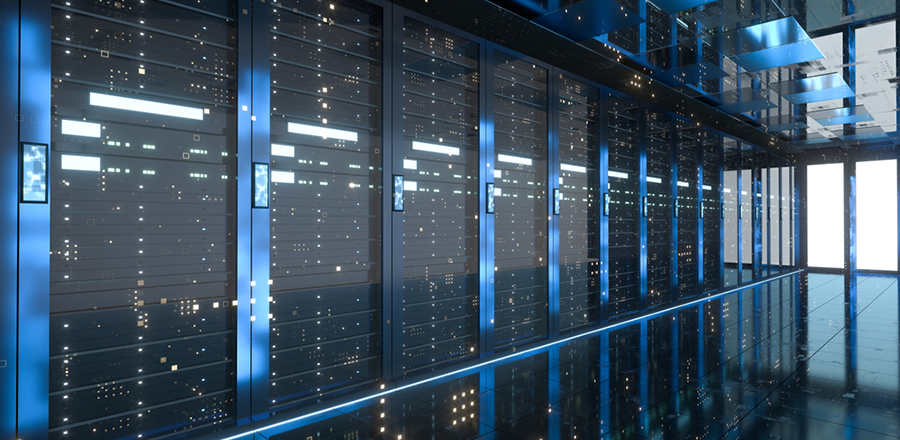
What is the fundamental difference between network infrastructure and IT infrastructure?
Network infrastructure and IT infrastructure are quite similar. However, there are some differences between them, which we will discuss here.
Any organization's IT infrastructure includes network infrastructure. To make your business run smoothly, IT infrastructure works the best, whereas Network infrastructure is necessary for strengthening IT infrastructure.
We have already discussed the components of an IT infrastructure in the above. In brief, IT components are anything related to an enterprise's IT environment, such as routers, hubs, data centres, servers, computers, switches, etc.
Software applications include enterprise resource planning (ERP), productivity and data management applications, and customer relationship management.
Network infrastructure includes anything used for networking, such as security and firewall, internet connectivity, etc.
So, it can be said that any network infrastructure company is represented as the components used for network communication, connectivity, and management of any enterprise. Any company's external and internal connectivity depends on good IT network Service.
For instance, to access any product feature, an external system attempts it with API's help. Now, to make this work seamlessly, good network infrastructure is required. It also plays a vital role in maintaining connectivity within the software's architecture. The following components are included in the Network infrastructure:
Networking hardware: Switches, routers, cables, wireless routers, and LAN cards.
Networking software: Network operations, operating systems, network management, network security firewall, and application.
Network services include DSL, IP addressing, T-1 Line, satellite, and wireless protocols. From the above information, we can conclude that network infrastructure is a part of IT infrastructure components. Therefore, both should be structured firmly so the empress can work smoothly.
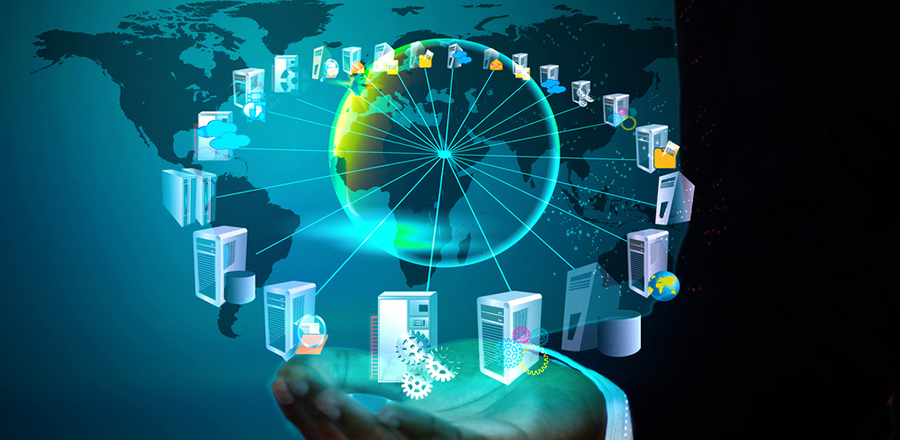
What are the different network infrastructure devices?
The physical components of an organization's computer network are called the Network Infrastructure devices. Network infrastructure devices' quantity and capacity depend on how big or small your enterprise is. Below are examples of Network Infrastructure devices that will give you a clear idea. They are:
-
Modem
-
Hub
-
Fax
-
Bridge
-
Router
-
Voice switch
-
Storage router
-
Cable modem
Hopefully, you are now clear about the devices used in network infrastructure.

What does IT infrastructure management mean?
IT infrastructure management includes developing an infrastructure for a business network with components supporting the performed activities. This would include various applications that act as a critical function. IT infrastructure management is all about supporting access functions for data information and other additional services.
IT infrastructure management is classified into different categories they are store management, network management, and system management. IT infrastructure management is necessary for every organization for different purposes. Some of the importance of IT infrastructure is stated below: -
-
Ensure adherence to standards
-
With the help of an information system, get information.
-
Ensure interoperability among external entities and organizations.
-
Maintain significant change in management policies and practices
Hence, only a significant infrastructure helps you improve your business performance. The IT and network infrastructure are important for maintaining good revenue for your enterprise.
Hence, every organization should focus on creating and maintaining a good network infrastructure to create a good impact on the company. Doing so will also allow your organization's employees to be more productive. You can even control a healthy workflow by maintaining a strong infrastructure.
This article will give you a clear idea about IT and network infrastructure. If you are unaware of the various components and devices included in the infrastructure, you can look at the information above to know in detail.
Only an adequate and robust infrastructure can make your organization run smoothly. Hence, it aims to create a good infrastructure.
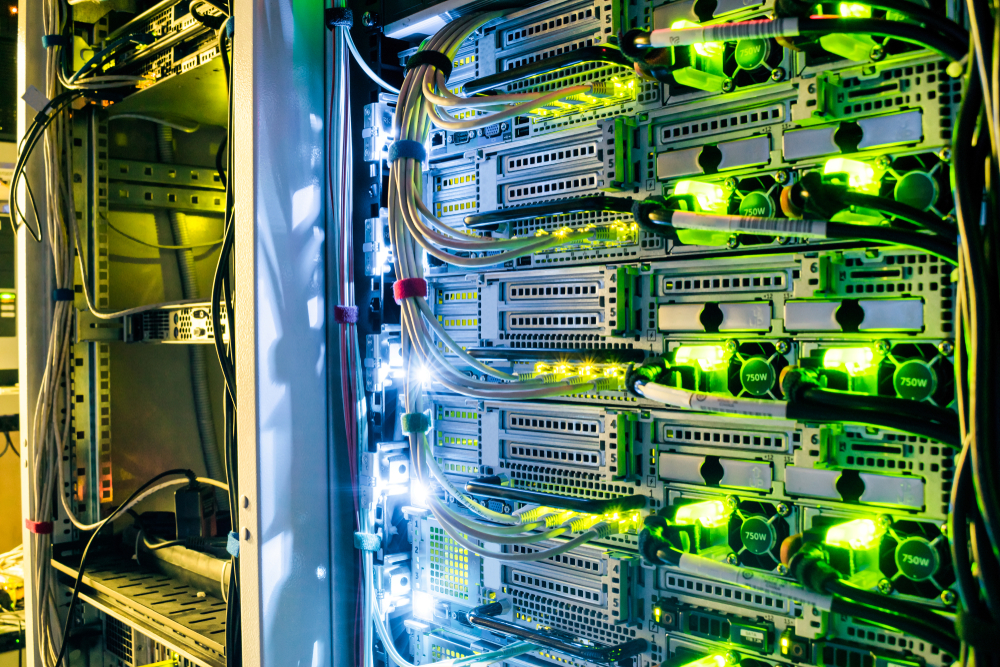
IT infrastructure components?
An IT infrastructure combines hardware, software, Network, and human resources, allowing an organization to provide information technology services to people. There are several critical elements in the IT infrastructure.
The most obvious is the hardware. It is almost impossible to get any IT service without any hardware. Organizations need desktop computers, servers, routers, switches, and other equipment.
Hardware is useless without software. Software is just as essential as hardware for IT infrastructure. An organization's available software includes productivity applications, enterprise resource planning (ERP), and customer relationship management (CRM).
Some of these applications can be purchased off the shelf and developed by the IT department based on other companies' needs.
The Internet is essential for modern business management. Network connectivity has become essential, as employees rely on their phone service via email, web access, and even VoIP. A network connection is an absolute must.
Think about how many more machines need to be connected. That means running cables and setting up networking hubs, switches, and routers.
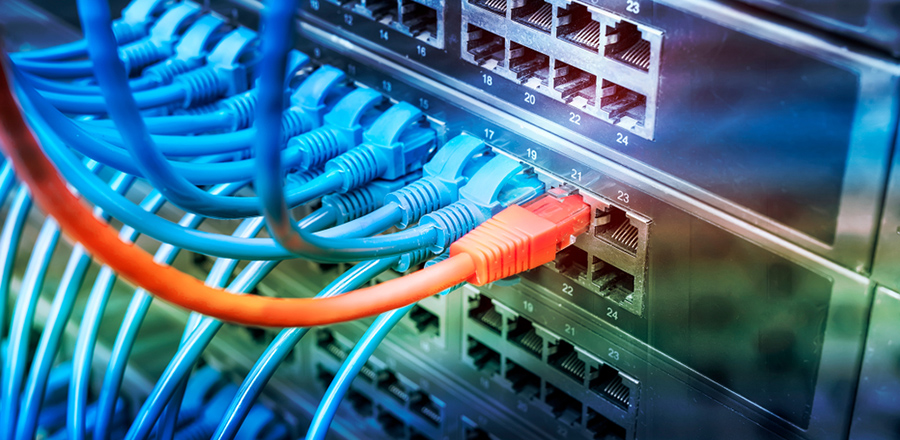
What are the benefits of Network Infrastructure?
Network Infrastructure has several essential benefits, and the details of one of those benefits are given below.
Provide good client service: Investing in its network technology solutions will help your company provide better services and create better products. Any to-do list for the IT department should always be at the top.
If you want to do everything you can outside your CRM solution, you need top performance in your IT infrastructure.
Boost agility: Virtualized and cloud infrastructure tools have always benefited the business, thus enabling the business to practice better data management. Businesses also play an essential role in meeting all their client's needs more efficiently and efficiently in the long run.
This makes it easier for IT managers to practice business agility when they have an overall vision of their computing tools.
Strong Network: When investing in information technology networking solutions to maximize your data centre's efficiency and increase computing power, you must get things done faster and balance your workload.
Get more from your server: The infrastructure that comes into the information technology data centre ensures it works for you is crucial. This includes tuning servers and investing in data centre technologies such as cooling and monitoring solutions that monitor your equipment so you don't need it.
Today, this article gives complete information about these infrastructure components. If someone has organized their company, this will give you the right idea about the infrastructure components.
Frequently Asked Questions
- How to Get Email Leads
-
 Introduction: - It is possible to change Facebook Fans into paying customers. It would be best to do it in inhabits immeasurably different from customary..
Introduction: - It is possible to change Facebook Fans into paying customers. It would be best to do it in inhabits immeasurably different from customary..
-
- Lead Generation Benefits
-
 Introduction ..
Introduction ..
-
- Sales pipeline definition
-
 Introduction – ..
Introduction – ..
-
- Marketing Process Definition
-
 A marketing process definition explains the purpose of a marketing business plan that helps you define the objectives and targets you want to achieve. The 5 Cs..
A marketing process definition explains the purpose of a marketing business plan that helps you define the objectives and targets you want to achieve. The 5 Cs..
-
- What is Lead Generation Campaign
-
 A lead generation campaign is a marketing campaign that focuses on collecting leads. It does not have to be done through traditional ways like cold calling or..
A lead generation campaign is a marketing campaign that focuses on collecting leads. It does not have to be done through traditional ways like cold calling or..
-
- What is Online Lead Generation
-
 Online lead generation is based on methodologies to draw interest and get business development conversions for growth. One can deploy several online tactics to..
Online lead generation is based on methodologies to draw interest and get business development conversions for growth. One can deploy several online tactics to..
-
- What is a Lead Generation Website
-
 Introduction: In the present era of digitalization, every company or business person launches a website. The motto of launching a website is to promote the..
Introduction: In the present era of digitalization, every company or business person launches a website. The motto of launching a website is to promote the..
-
Related Terminology Explained
- SEO Lead Generation Services
-
 Introduction: - SEO Lead Generation is a crucial factor and a matter of great importance, especially for dealers and their prospective enterprises. Increased SEO..
Introduction: - SEO Lead Generation is a crucial factor and a matter of great importance, especially for dealers and their prospective enterprises. Increased SEO..
-
- What Does Mean Lead Generation Marketing?
-
 Introduction: - Not every company follows the same procedure for lead generation marketing. It depends on the main objective and end goals of your organization. The..
Introduction: - Not every company follows the same procedure for lead generation marketing. It depends on the main objective and end goals of your organization. The..
-
- Pre-qualified Investor Leads
-
 The Beginning: - We know more or less about the term lead generation, why it is essential, and its various usefulness. But the world of business and marketing is..
The Beginning: - We know more or less about the term lead generation, why it is essential, and its various usefulness. But the world of business and marketing is..
-
- Stock Investor Leads
-
 Introduction: - A stock market is considered one of the pillars of a nation's economy. The stock market is the place people use to sell or exchange stocks by..
Introduction: - A stock market is considered one of the pillars of a nation's economy. The stock market is the place people use to sell or exchange stocks by..
-
- Penny Stock Investor Leads
-
 The Beginning: - We live in an era where new things are happening rapidly from our place to the business sector. Penny Stock Leads are such kinds of things that can..
The Beginning: - We live in an era where new things are happening rapidly from our place to the business sector. Penny Stock Leads are such kinds of things that can..
-
- Free Investor Leads
-
 Here, you can get high-quality investor leads from Mont Digital Company. Our company provides the best quality investor leads, stock investor leads, property leads,..
Here, you can get high-quality investor leads from Mont Digital Company. Our company provides the best quality investor leads, stock investor leads, property leads,..
-
- Accredited Investor Leads
-
 Introduction- Land brokers must develop a lively conduit of accredited real estate investor leads. You may have a large number of clients when you have low interest..
Introduction- Land brokers must develop a lively conduit of accredited real estate investor leads. You may have a large number of clients when you have low interest..
-
Why Choose Us
Choose us because we are different, and we have proved it!

We're Experienced
Working with several different Business big and small , you can benefit from our decades of collective experience.

We Listen
We like to get to know our clients and their business properly, so we can determine the best way forward.

We're Results Driven
We believe in action and making the difference that would enhance the flow of your business.

We're Selective
We only say Yes where we know real value can be added and make a significant positive difference.










